For the Visual Learner: "Two Questions" Exercise Follow-Up
Or: "Just How Do Authors Take Notes, Anyway?"
Happy Friday! First thing’s first: I’d just like to thank everyone for checking out my little corner of the Internet! I’ve had some wonderful messages from friends and readers about the new website and newsletter. Before we get into this little follow-up issue, I’d like to invite you to head on over to my chat here on Substack! It’s where I’ll be sharing monthly threads about what we’re all reading, and where you can share your love of books, writing, and all things creative! I’d love to see you there!
Okay, on to business…
Learning by Sight
I’m a visual learner. Always have been, always will be. I learn best when I can see examples of how other people have done a certain task that I’m also trying to do. I almost never copy someone’s methods exactly, but it helps me to have a model—a framework, if you will—that looks like what I’m trying to accomplish.
Let’s talk about author notebooks. Those sacred, personal spaces where authors put pen to paper on a new or existing project, and work through their ideas about characters, settings, plots, conflicts, big scenes and ideas, and even how they plan to end their story.

Many, many authors keep notebooks for their work. Sometimes, they’ll just throw all their dreams and ideas and plans into one notebook until they fill it up, then they’ll start a new one. Sometimes, authors have a different notebook (or several) for each project so that they can keep it all organized and separated.
Craft book after craft book, author panel after author panel, newsletter after newsletter, seems to offer up the advice “Keep a notebook!”
Maybe you’re a new author, just starting out, and you’ve found yourself wondering, “Just what do those author notebooks look like? How do you even take notes for a project?”
I’ve been in your shoes—on a lot of questions in the writing/publishing world1, including this one. So, what’s the answer, then? What sorts of things do you actually need to write down?
And the answer is this: Write down anything and everything that is, or will be, helpful to you, the author, on your journey toward crafting your novel.
There’s no one-size-fits-all answer here, because your notes are your notes. What you write down in a notebook may not be the same things I would or that your friend would or that Stephen King would. You’ve got to figure out what you need and what helps you bring out the creative writer and thinker you know you are on the inside.
A Peek Behind the Curtain
“But that’s not helpful!” you say, banging your fists on your empty notebook, sending your nearby ink pen flying at the wall, scaring your sleeping dog into a panic attack, and nearly spilling your drink all over yourself. “I need to know something more specific! Help me!”
Okay, okay. Fear not! Because I’m a visual learner, and because I’ve taught visual learners for years, I know that sometimes we just need a little inspiration. We need a peek behind the curtain at what other people with our same goals are up to. And that’s where I come in to (maybe) save the day for you!

I’m actually going to show you some pages of my notes for a new project I’m working on. If you’ve read my first Street on the word newsletter, you may remember that rooftop party where I told you to waltz up to the protagonist in your new novel and ask them two questions:
What’s been going wrong with you lately?
How are you coping?
(If you’re taking the leap into a new writing project like I am—maybe it’s your first or second or tenth—then this would be a great opportunity to continue following along with me [and with others]! We can all get through this together! And you’re in luck, because we are in the very new, very early stages of plotting a new project.
And because, as you may also remember from last week, all novels really boil down to getting our main protagonists right from the very beginning, we’re really going to drill down on that exercise in this issue.)
I’m going to show you what I’ve come up with for the responses to those two questions for my main protagonist.
Tool of the Trade
Before I show you how I take notes, allow me to introduce you to one of my absolute favorite tools: The Rocketbook!
This dandy is the perfect marriage between an old-school notebook and cloud storage technology! If you enjoy organizing all of your resources digitally so that you can access them on the go, but you also really enjoy the feel of writing on paper and taking notes the old-fashioned way, this gadget is for you!
Totally not a sponsored post, I just really love this product. It’s versatile, customizable, and just fun to use, honestly. You can use the erasable pages to take notes, scan then to your favorite cloud storage app like Google Drive or Evernote (which I use), then wipe them clean for future use. And they’re pretty affordable! I got mine at Walmart for under $25.
The Good-Good
Okay, this is what you came for. Real quick, let me give you some background on the character I’ve chosen to approach up on my made-up rooftop party.
His name is Harrison, and he is a member of a massively popular Christian vocal group. I’ve had a story about someone like this in my head for years. I’ve been gathering my thoughts and all of the personal experiences and stories from others that will inform the book I’d like to write, and now I’m ready to really start fleshing it out. I want to tell a story about a singer in a Christian band who’s trying to come to terms with his bisexuality, questioning his faith, possibly losing his career if he’s found out, and trying to carefully navigate everything that comes with all that.
So, bearing that in mind, here are my notes from the exercise:
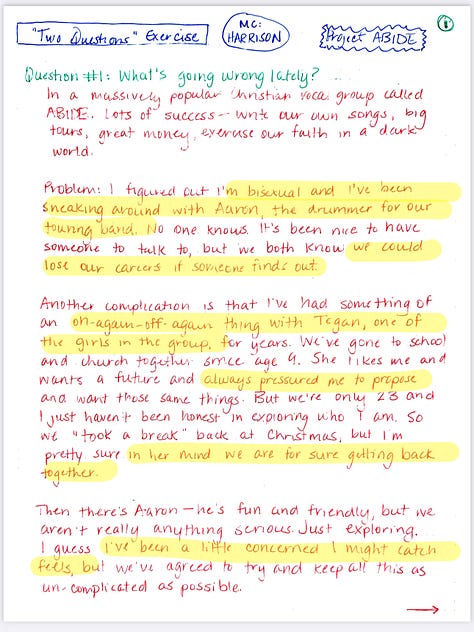
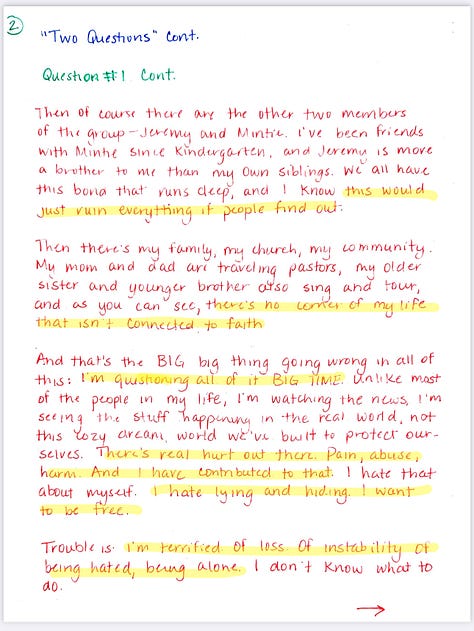
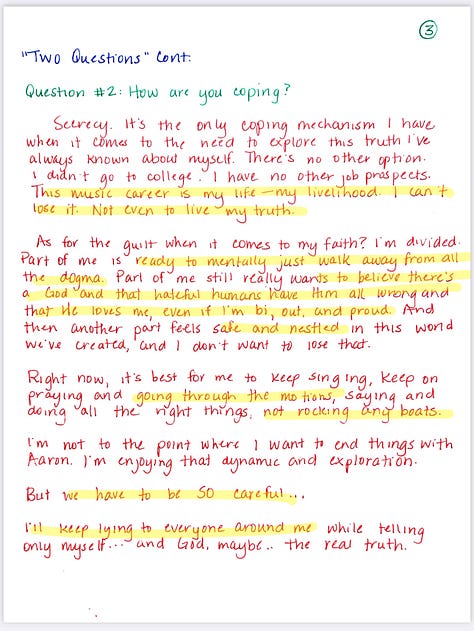
Some Notes on My Notes
I want to take a look at a couple of things that stand out to me as I read back over my own notes (which I always encourage you to do).
Longhand vs. Shorthand
You can see that I’ve written these notes out in longhand—complete sentences, punctuation, very little in the way of bullet points and short phrases. That’s because, for me, at this early stage of development, it’s important that I get as much detail down as possible about this person I’m going to be spending a lot of time with in the process of creating my story.
But longhand is not the rule, certainly. Even I don’t use it for everything. For other stages of note-taking on this project, I’ll be resorting to bullets and shorthand a lot. Especially if I only have a few minutes to jot down some quick ideas before getting back to some other task. You’ve got to do what works for you! These are your notes.
Free-writing
I didn’t spend a lot of time formulating these responses. I just wrote out what came into my head, almost as if I really was at a rooftop party talking with Harrison, asking him these questions and hoping for answers that would generate some ideas about who he is as a person.
There are lots of things in his responses that will probably end up in my story. There are also some things that may not. Two examples I know I may or may not end up using would be that his parents are traveling ministers, or that his siblings also sing and tour. Those were just things that came to mind quickly that may not ultimately serve the story. It may be better for me to make his parents have some other career, or to make him an only child. These open-ended possibilities and what-ifs are normal and perfectly okay.
It’s better to just let your brain dump as much information as you can (being sure to keep it all in the context of the questions being asked at this stage) and then pick out the valuable pieces later. Like gem mining! Beyond sticking to the questions at hand2, try not to let yourself get too picky about what actually comes out of the pen and onto the paper. Not yet, anyway.

Highlights
I don’t want to get too far ahead here, because we’re really focusing on our main character right now. Our hero. Our protagonist. The person we want our readers to go on this journey with. And boy, can I already see a journey forming for Harrison. You may notice that I’ve highlighted some things in my notes already.
Things like we could lose our careers if someone finds out and in her mind, we are for sure getting back together and I’ve been a little concerned I might catch feels.
So what purpose do these little highlighted nuggets serve? They’re elements that have come out of this character development exercise that serve as two other key ingredients in the building of my narrative—ingredients that can transform individual components of a novel into a cohesive, gripping narrative that readers can’t put down:
Conflict and stakes.
All of these highlighted segments are phrases that suggest one of these two elements. We’re not quite to that stage of the development process yet; we’re still talking about character right now. Specifically our main character. However, the reason I let my mind start thinking about these other components at this stage is because they are inseparable from my main character. They are woven into the fabric of that character’s existence. They paint a portrait of who he is before my readers jump into his life story. Harrison won’t be able to walk through this story, this plot, without these crucial little story ghosts3 sneaking up on him and causing all kinds of chaos.
After all, it’s Harrison, my main character, who said these things, in the context of the “Two Questions” exercise. He’s the one who suggested them. They’re in his head by proxy of being in mine. So, naturally, these are things he’s doing, things he’s thinking about, things he fears, things he values, things in his past that are creating dilemmas and conflict for him in his present, before there’s even a story to tell.
You can do the same thing here, if you want. You can go into your notes and mark phrases that might serve you in this same way a little later on. I can promise you that, if you continue to follow my newsletters, you are going to see the words stakes and conflict again. Like, a lot.

Of course, as the author who’s going to put Harrison through a harrowing plot and connect him to my future readers, I’m going to use these little revelations to create the most interesting, conflict-fueled story I can in order to drive an emotional narrative that readers can’t put down. That’s my job, unfortunately for Harrison. It’s your job, too. And if we’re any good at it, our main characters’ lives are going to get worse before they get better.
So. Much. Worse.
To Conclude…
And there you have it. A look at my process for note-taking. I emphasize that it’s my process because it’s so important to understand that everyone’s is different. What works for me may not work for you. Or, you may find that some things that work for me work for you, but you also have to pull some other strategies from some other writer(s). Or, you can use these examples as jumping-off points and come up with some brand-new methods that work well for your process.
Regardless of how you take notes—or even if you take them—the important thing, at the end of the day, is that you keep going. And going. And going.
Eventually, we’ll all make it to that ever-important finish line, and we’ll have awesome, shiny, new manuscripts to show for it. I can’t wait to hear all about yours!
Looking Ahead
This was a bit of a transitional issue. Next time, we’ll be returning to our rooftop party, because believe it or not, we’re not done interviewing our main protagonist yet. Now that we know what’s going wrong for them, and how they’re coping, we’ve got to start figuring out the why. Why are these things such problems for our protagonists specifically, and why are they choosing to cope with them in exactly the ways that they are. And not just the surface why. We’ve got to figure out the deep-seated why. We’ve got to learn about our main character’s values and more about the little pieces of their histories that inform their present situations.
All of that and more to come!
Until next time. Happy writing!
Recently Read
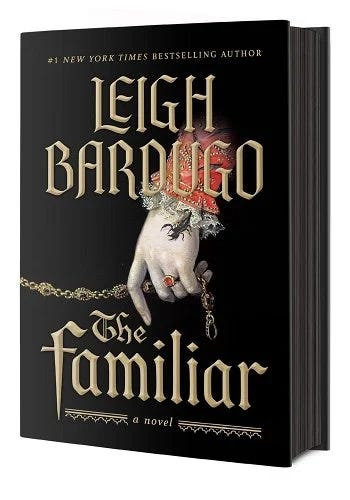
This was a five-star read for me. Leigh is one of those writers that I truly believe can write in any genre, for any age group, and still manage to let her writing voice shine through. It’s unmistakable here, as she serves up a historical setting that tickles all five senses, as well as a heroine you’ll want to root for and a shadowy sidekick of a love interest you’ll wonder about until the very end.
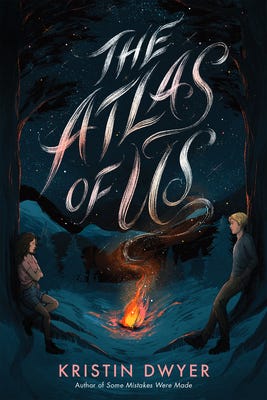
Kristin says I’m a “picky bitch” when it comes to my reading, and she’s right. But I can tell you with certainty that this picky bitch happens to think Kristin is one of the most authentically talented writers in the contemporary game. She writes with a complete understanding of human emotion and how it grows and changes over time, and how we relate to those changes as readers. Kristin lets us sit with things and really chew on them. Where most authors want to hurry us along to the next plot point or to the novel’s resolution, Kristin says, “Wait, hold on. There’s a point here, and I want to make sure you have time to really think about it.” It’s beautiful. I love it. I will never NOT recommend her books to you. Get this one ASAP!
Currently Reading
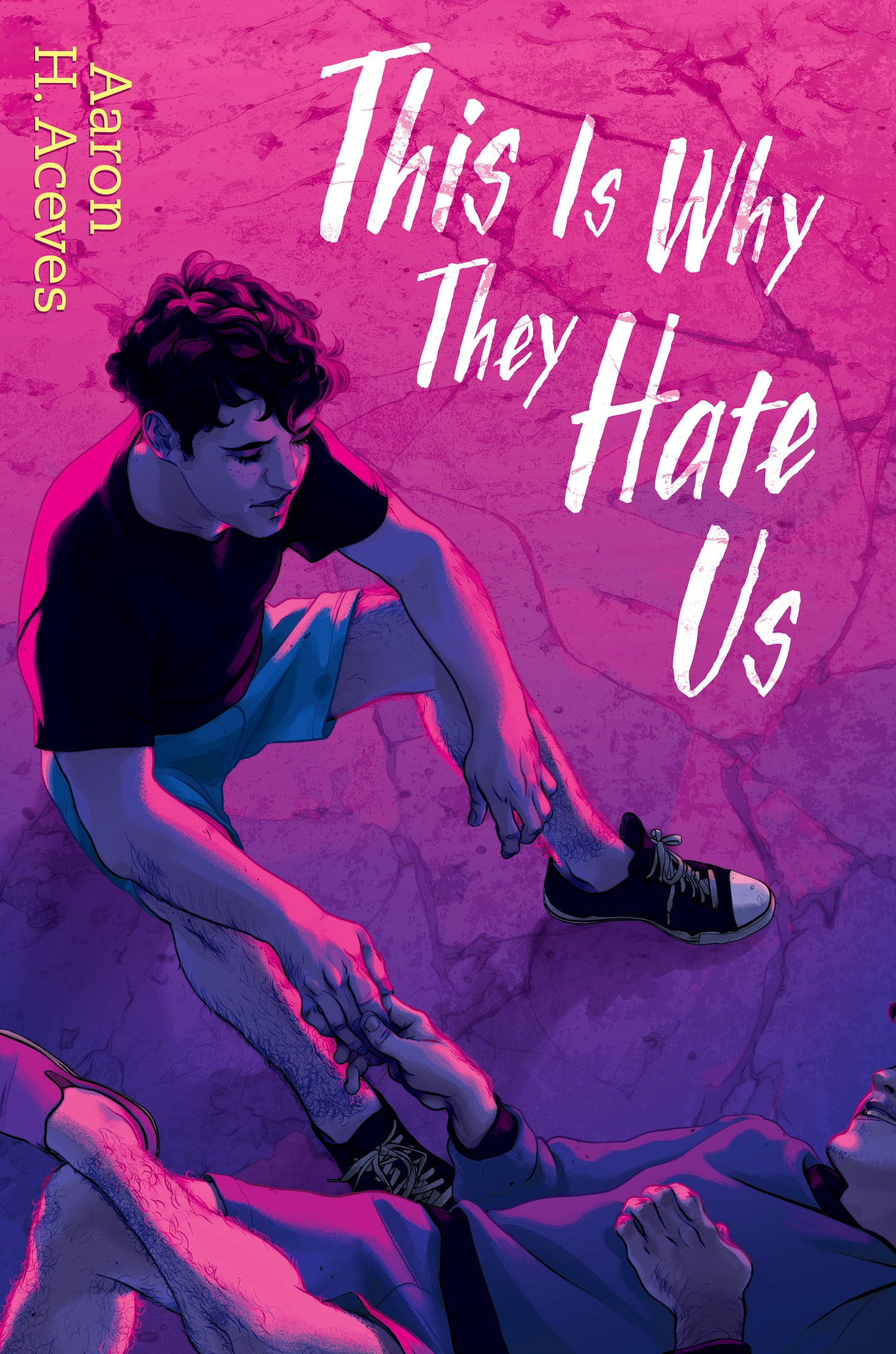
I met Aaron at YallFest a couple years ago, and I’ve been following his career with interest. I’m excited to finally dive into this one!
We’ll talk about many other questions like this where authors can also benefit from models and examples…later on down the road.
I am careful to remind new writers that sticking to the questions being asked can be a valuable thing to remember. If you open up the free-writing to just any response at this stage, you could end up just writing pages and pages and pages of unfocused notes that are harder to parse later. Right now, we want to know what’s bothering our character and how they’re coping with it. RIGHT NOW. Here in the present. If we start diving too deep into the character’s past, you could end up feeling pressured to write an entire character bio, with the tiniest details included, whether they matter to the story we’re trying to tell or not. That can be overwhelming at this stage, which is why I caution against veering too far away from the two questions we’re specifically trying to find answers to right now. Notice that my notes are three pages. Not thirty.
“Story ghost” is the term I give to any element of my story that serves to “haunt” my characters in some way. That’s why the term is particularly applicable to notes on stakes and conflict. Conflict haunts by its very nature; it creates instability between my main character and some other character, or himself, or nature or some other presence in my story. Stakes haunt because they are fixed points of reference in my main character’s life, and he’s got to do something, achieve something, accomplish something if he wants to meet the favorable outcome of those stakes.





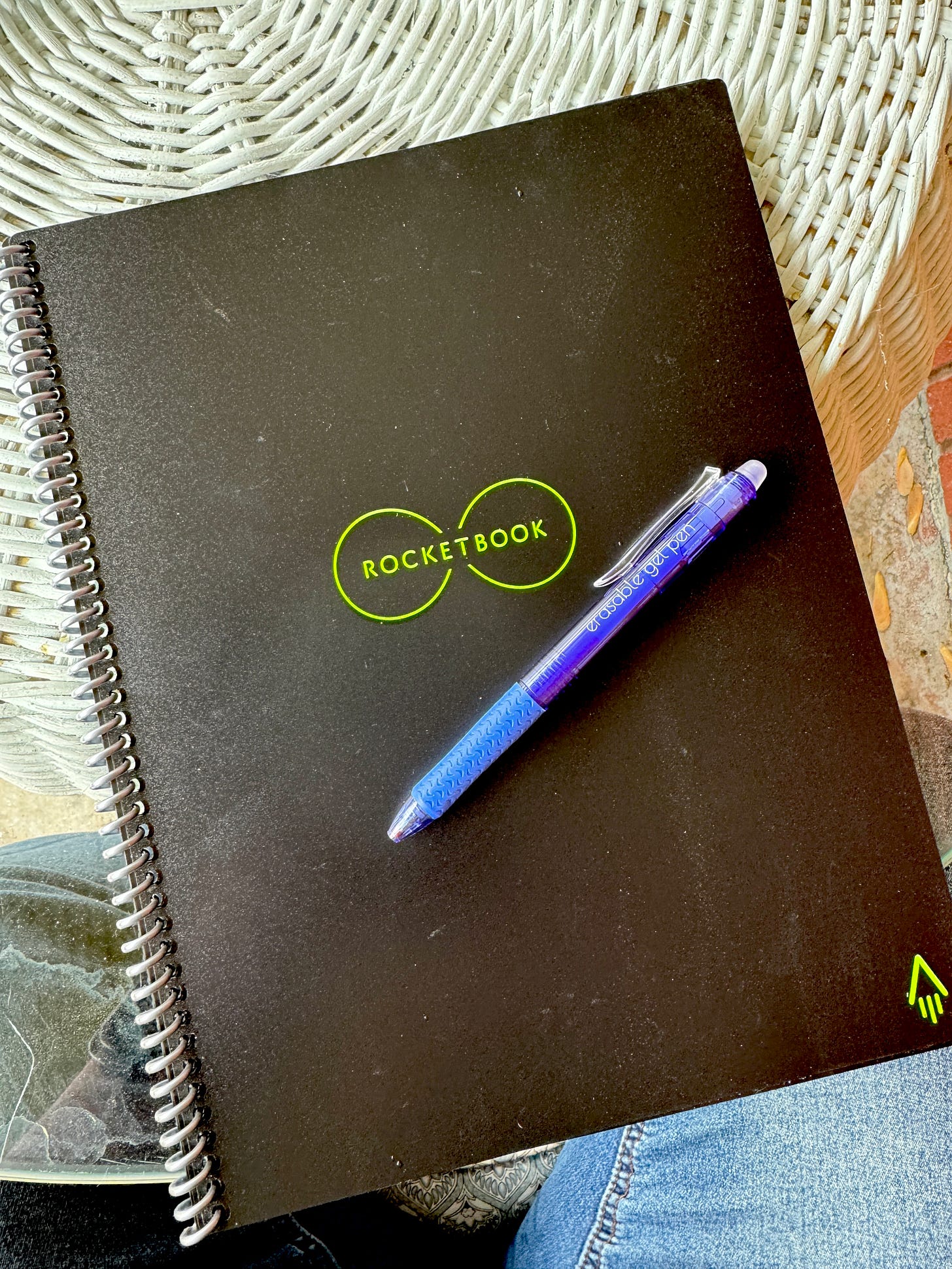

You know, the RocketBook sounds intriguing but I know myself well enough to worry that I'd sit it down beside me on the sofa and not use it.
I have never been a great notebook keeper and I don't tend to write much down until I sit down to write--not that I don't have to scrap and start over a lot, but I have just never been a note taker. I think that's because I'm predominately auditory. When I do feel compelled to write things down, it's usually in the Notes on my iPhone.
I really appreciate your efforts here and I look forward to using it to help me grow as a writer.